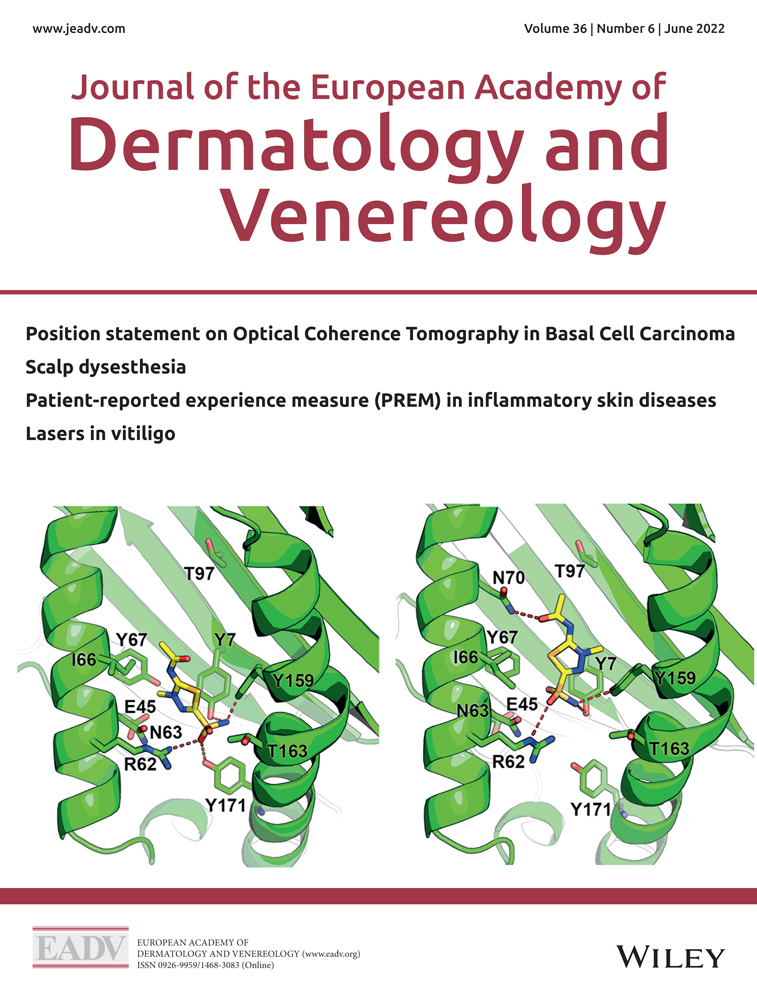Commentary to ‘Development of a patient-reported experience measure for chronic inflammatory skin diseases’ by E. Van den Steen et al.
Abstract
Linked article: E. Van den Steen et al. J Eur Acad Dermatol Venereol 2022; 36: 913–921. https://doi.org/10.1111/jdv.17982.
Goal of the work of E. Van den Steen et al. was to develop (i) a patient-reported experience measure (PREM) for adult patients with chronic inflammatory skin diseases, which would allow routine measurement of patient experiences, especially related to patient care and of the management process in immune-dermatology consultations. Furthermore, the PREM should be valid (ii) to serve as proxy for patient-perceived quality of care and (iii) provide a basis for continuous improvement of care delivery. The PREM should be (iv) easy to understand for the patient, the filling-in of which (v) should not take long of the patient's time, but still comprise the most important items. E. Van den Steen et al also aimed to do a first internal validation.1
Patients with chronic diseases appreciate being able to communicate their specific situation and want to be considered as human beings with individual needs in the treatment of their disease (holistic approach). Patients are therefore motivated to welcome and support the goals of the work commented on here.2
The study took place during the COVID pandemic. This is the reason why only 10 patients with various chronic inflammatory skin diseases were interviewed by a researcher (details of the researcher are missing) to define the longlist of criteria out of all criteria found in the literature for the discussed PREM. A focus group was then formed with eight healthcare professionals and two patients with chronic inflammatory skin diseases. This group agreed on the shortlist of questions to be included in the PREM. The overweight of healthcare professionals in selecting the questions for patients to evaluate their work is not explained. On the other hand, the development of the ‘Atopic Eczema Score of Emotional Consequences (AESEC)’,3 which, although not a PREM, involved only patients (n = 103) from five countries and their input was used to develop the final list of questions. In this publication, the statistical methods used are explained in detail, an aspect that is not included in the paper commented on here. The validation of the AESEC questionnaire was then carried out with a survey in nine countries with n = 1189 patients.4
Another important aspect is the principle of multidisciplinary care. In the study by E. Van Steen et al., the focus group for the final questions consisted of two patients, two nurses from dermatology departments and six dermatologists with varying professional experience. It is known that, apart from the professional groups mentioned in the field of chronic inflammatory skin diseases, dieticians/nutritionists as well as psychologists or even psychiatrists play an important role in the optimal care of patients with chronic inflammatory skin diseases.5 Also, important is the involvement of the primary care physician of the respective patient.
It would be interesting/desirable to test the development of the PREM for chronic inflammatory skin diseases with a larger patient group and with patients alone or with only one healthcare professional as a consultant. This may also lead to an explanation why no question from the domain ‘patient satisfaction’ in the long list eventually made it to the shortlist. For other questions in the PREM, the level of satisfaction can be expressed on a scale from ‘strongly disagree’ to ‘strongly agree’. Therefore, the given answers of the PREM indirectly will answer the satisfaction of patients. Perhaps an item ‘changes of the patient's quality of life after the last consultation’ would be an approach to gauge the emotional satisfaction of the patient.
A group that is particularly difficult to satisfy in medical consultations are the caregivers of children with chronic inflammatory skin diseases. A PREM for these caregivers would be a helpful tool!
In any case, the creation of PREMs as a tool for patients to express their views on the treatment they are receiving is an important step.
Conflicts of interest
None to declare.
Funding source
None to declare.
Open Research
Data availability statement
None.




